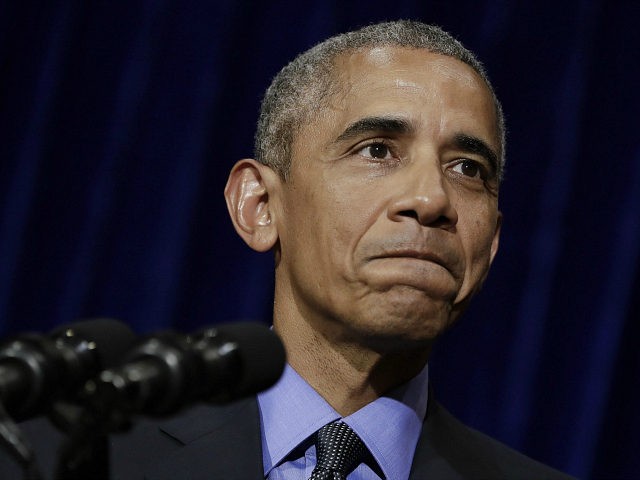A horrified nation learned this week that President Obama handed over $1.7 billion in cash to the terror masters of Iran as part of his nuclear deal, using pallets stacked with currency to circumvent Congressional authority and gifting Iran with a huge amount of untraceable money to sponsor bloodshed across the Middle East.
Also surprised, and somewhat annoyed, by the news: Obama’s fellow Democrats in Congress.
The Weekly Standard caught up with a few Democrat senators on Wednesday, and all of them claimed to be surprised by the revelation. Senator Gary Peters (D-MI) said he learned about the cash payment by reading the newspapers.
Iran deal opponent Joe Manchin (D-WV) said he was not briefed, and did not know the huge payment was being made to Iran at all, let alone that it was tendered in cash.
Amusingly, Sen. Chris Coons (D-DE) initially offered a tepid denial that he was briefed, but then changed his mind when an aide handed him an printed copy of an email proving that he was briefed. (Perhaps Hillary Clinton’s memory losses are becoming contagious?)
Coons then said he was aware of an “outstanding judgment” that needed to be paid off as part of the nuclear deal, “the release of American hostages, and other matters.” The White House will not be happy that he came so close to admitting the gigantic pile of money shoveled to Iran was, at least in part, a ransom payment.
Senior senator Pat Leahy (D-VT) then rolled in to contradict everyone who said they were not briefed, insisting “almost every senator” was told the cash payment was coming, several months ago.
One other bit of grim comedy from the Weekly Standard’s report is the State Department insisting that Iran has not used any of the cash Obama gave them for “nefarious activities”– at least, not “so far.”
They should have been more honest and said “so far as we know.” The reason criminals want cash, of course, is to keep the authorities from tracking how they spend it.
As Saeed Ghasseminejad of the Foundation for Defense of Democracies put it to the Standard, “With bags of untraceable hard currency, Iran can more easily support its allies or illicitly procure missile and nuclear parts.”
Over on the Republican side of the aisle, the House Financial Services Committee held the first of several hearings on the Iran cash controversy Thursday. Fox News described the hearing as “tense.”
Investigations Subcommittee Chairman Sean Duffy (R-WI) complained that Administration officials only attended his hearing “under threat of subpoena,” while State and Treasury have ignored document requests for over a month.
“There is a risk you have taken in providing $1.7 billion to the leading state sponsor of terrorism in the world,” a “clearly frustrated” Rep. Duffy said to the officials appearing at the hearing.
The full chairman of the Financial Services Committee, Rep. Jeb Hensarling (R-TX), worried that the Administration’s Moolah for Mullahs program had “put a price on the head of every tourist, soldier, airman and marine who serves or visits overseas.”
“Cash is the currency of terrorism,” said Hensarling, as quoted by the Dallas Morning News. “We paid cash to the world’s foremost sponsor of terrorism. And the question is, again, why was that done?” He went on to compare the Iran payoff to a money-laundering operation.
Another member of the Foundation for Defense of Democracies, executive director Mark Dubowitz, provided written testimony to the hearing that noted the $1.7 billion in cash everyone is currently arguing about might not be the first, or the largest, cash payoff to Iran.
As Dubowitz explained, if the Obama Administration is telling the truth that all other forms of financial transfer to Iran were blocked by sanctions and/or the need to secure congressional approval, than some or all of the $33.6 billion given to Tehran since the nuclear deal went into effect might have been remitted in cash, or maybe “gold and other precious metals,” which won’t make those worried about stacks of untraceable bills feel much better.

COMMENTS
Please let us know if you're having issues with commenting.